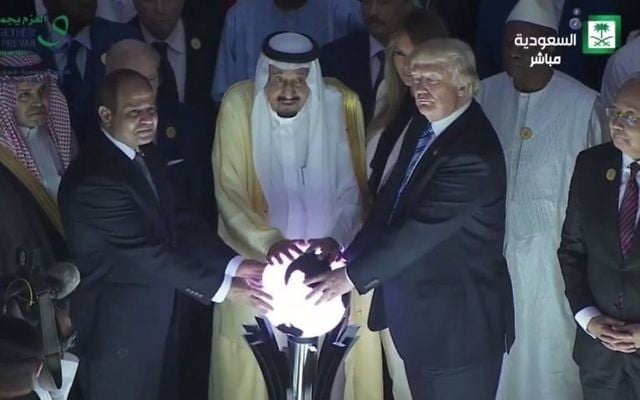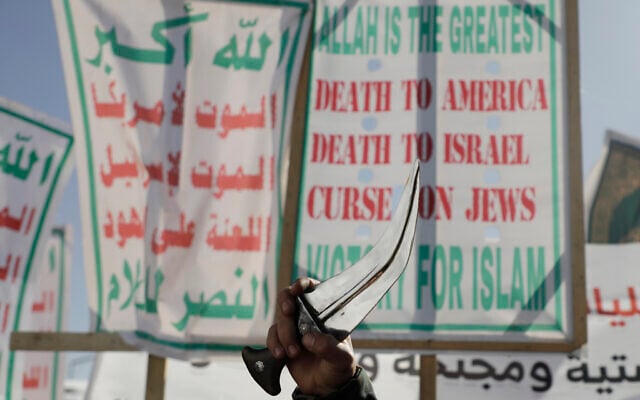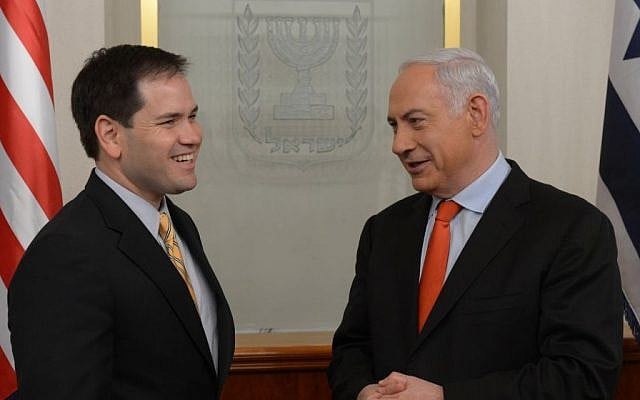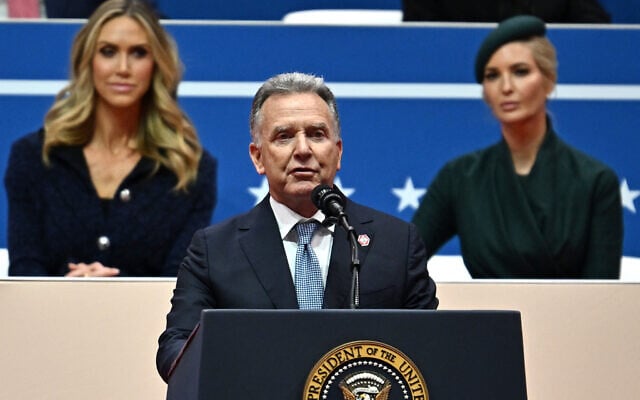


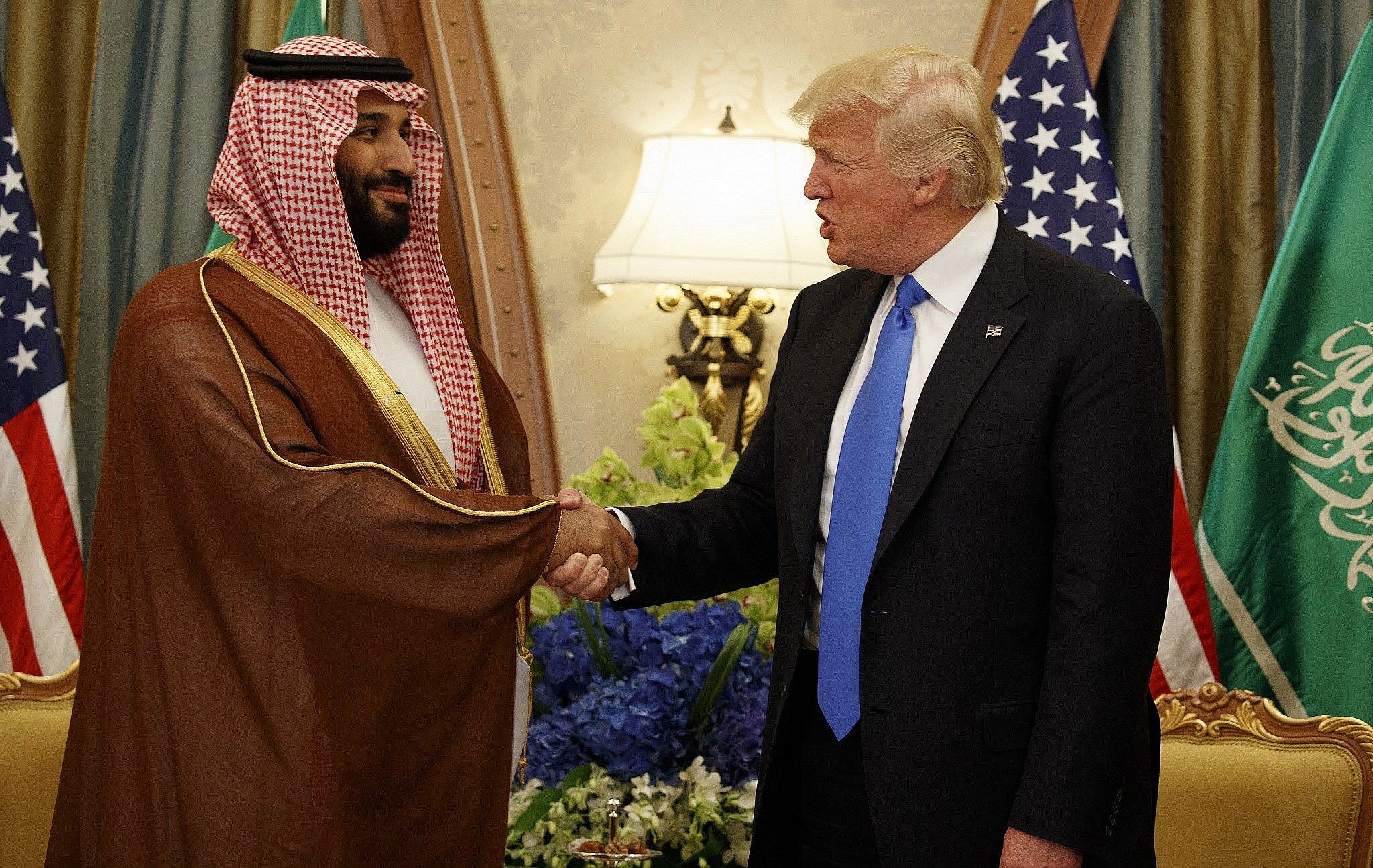
Saudi Crown Prince Mohammed bin Salman on Wednesday became the first foreign leader to hold a phone call with US President Donald Trump since his return to office this week for a second term.
The decision to first speak with the de facto Saudi leader, known by his initials MBS, indicated the Trump administration’s priorities, with the president expressing his desire to expand the Abraham Accords with a normalization agreement between Israel and Saudi Arabia.
The deal would likely be part of a massive defense agreement that Riyadh is looking to sign with Washington, which would provide Saudi Arabia with security guarantees from the US if it faces attack and also lead to huge investments into the American economy.
But the Saudis have long made clear that such a deal would require the establishment of a pathway to the eventual establishment of a Palestinian state. Since the outbreak of the Gaza war sparked by Hamas’s October 7, 2023, terror onslaught, Riyadh has intensified that rhetoric, with those in touch with the crown prince saying he would no longer be able to accept more symbolic steps from Israel, and that concrete steps would be required. Moreover, Saudi Arabia has made clear that an end to the war in Gaza is also a necessity before normalization talks can proceed.
Prime Minister Benjamin Netanyahu has long rejected a two-state solution, and even small steps in that direction would likely lead to the collapse of his hardline government.
Bin Salman told Trump during their Wednesday call that Saudi Arabia would like to expand its investments in the US over the next four years to $600 billion and that the figure could further increase “if additional opportunities become available,” according to a readout published on Saudi state media.
Trump told the Saudi crown prince that he looks forward to working with Riyadh to advance common interests, the Saudi readout added.
There was no readout from the White House immediately available, though the pair likely also discussed Trump’s decision to move toward again designating the Iran-backed Houthi rebel movement in Yemen as a Foreign Terrorist Organization.
The White House announced the move shortly after their call. It was a step pushed by Riyadh, which has long faced attacks from the Houthis and supported the Yemeni government against the rebel groups in a years-long civil war that decimated much of the country.
Trump’s first administration designated the Houthis as an FTO, but the move was reversed by former US president Joe Biden due to concerns that the highest-level sanction was preventing aid organizations from delivering humanitarian assistance to civilians in Yemen.
Toward the end of his term, Biden did reapply a lower-level terror designation of the Houthis after the rebel group began a campaign of missile attacks on Israel and on Red Sea shipping routes, which severely hampered the global economy. The Houthis claimed they took the step in solidarity with Palestinians in Gaza and pledged to maintain their attacks until Israel agreed to a ceasefire.
On Wednesday, Trump signed an executive order that directs the State Department to prepare a report within 30 days recommending that the FTO label be reapplied to the Houthis. Within 15 days of receiving that report, new Secretary of State Marco Rubio is expected to sign off on the recommendation to reimpose that label on the Houthis, the executive order states.
Once the designation has been reapplied, the executive order stipulates that the US Agency for International Development and the State Department sever ties with any entity in Yemen that has made payments to the Houthis or has worked against international efforts to combat the rebel group.
Also Wednesday, Prime Minister Benjamin Netanyahu held his first phone call with Rubio since the latter become America’s top diplomat.
Rubio “underscored that maintaining the United States’ steadfast support for Israel is a top priority” for US President Donald Trump, a readout from the State Department said.
Rubio “conveyed that he looks forward to addressing the threats posed by Iran and pursuing opportunities for peace,” according to the State Department.
The secretary also “congratulated” Netanyahu “on Israel’s successes against Hamas and Hezbollah and pledged to work tirelessly to help free all remaining hostages held in Gaza,” the US readout added.
There was no immediate statement on the call from the Prime Minister’s Office.
Freeing the remaining hostages will likely require sticking with the ceasefire deal that Trump helped finalize ahead of his return to the White House earlier this month.
Netanyahu has sent mixed signals regarding whether he wants to see the deal past its first phase, pledging to resume fighting if the negotiations regarding the terms of phase two do not see Hamas cede both military and governing powers in Gaza, which the terror group is not expected to do. Finance Minister Bezalel Smotrich said that Netanyahu gave him an assurance to resume fighting that was not conditioned to the negotiations on phase two, which are slated to commence on February 3 at the latest.
Trump’s Mideast envoy Steve Witkoff asserted earlier Wednesday that he is committed to reaching the second phase of the hostage deal when the remaining living hostages are slated for release.
“We have to make sure that the implementation goes well, because if it goes well, we’ll get into phase two, and we’re going to get a lot more live bodies out,” Witkoff said in an interview with Fox News.
While Trump has said that he wants to see all of the hostages released and the war end, he admitted on Monday that he is not confident that the ceasefire will hold.
Asked about that lack of confidence, Witkoff said he agreed with the president and that implementation of the deal will likely be more difficult than the initial agreement.
Arab officials from mediating countries told The Times of Israel that Witkoff’s role was essential in bringing the hostage deal across the finish line, particularly due to the pressure he placed on Netanyahu during a meeting in Jerusalem on January 11, which led to a breakthrough in the negotiations.
Asked what he told the parties during the negotiations, Witkoff says he highlighted Trump’s threat of “all hell to pay” in the region if the hostages were not released by his January 20 inauguration.
Witkoff highlighted his goal of expanding the Abraham Accords, insisting that all countries in the region could eventually join the alliance.
“Normalization is an amazing opportunity for the region. It’s basically the beginning of the end of war, [which] means that the entire region becomes investable [and] financeable,” he said. “Banks do not have to underwrite whether the Houthis, Hezbollah or Hamas are going to fire a missile and take down a hyper-scale data center.”
He noted that a precondition to expanding the Abraham Accords has been a ceasefire in Gaza.
Asked who are potential candidates for joining the Abraham Accords, Witkoff highlighted Qatar, lauding the role of its prime minister in mediating between Israel and Hamas.
Doha has long asserted that it will not normalize relations with Israel until a Palestinian state has been established.

